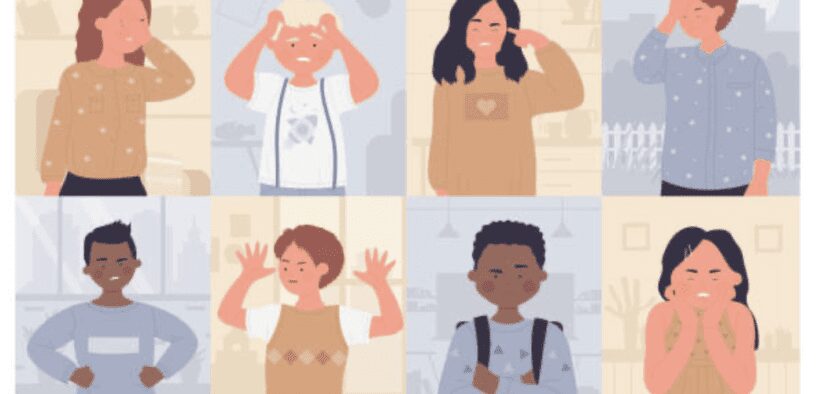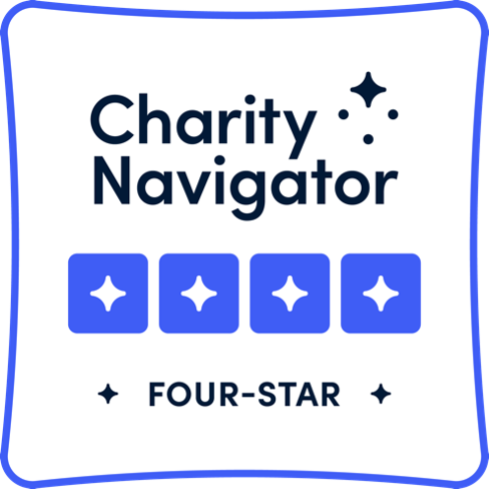For individuals, families, and communities across Greater Atlanta, the impacts of COVID-19 have left us feeling stressed, anxious, and struggling to cope.
When we think about the impacts COVID-19 on children and adolescents across our region, we are also grappling with the increased vulnerability this pandemic has placed on the mental well-being of our youngest population.
At the height of the pandemic, children endured shifts to their education, social isolation from family and friends, and postponement of meaningful activities: family vacations, sports and club activities, and other social activities. Children were forced to adjust and reimage how they celebrated milestones – we witnessed proms and graduations go virtual; we watched children and young adults shared their frustrations with the world on social media. We also witnessed how children responded to the racial and social injustices happening in our country, all while having to adhere to public health guidelines on social distancing.
In a recent issue brief by the Kaiser Family Foundation, more than 25% of high school students reported worsened emotional and cognitive health because of the pandemic. Over 20% of parents with children ages 5-12 reported similar conditions for their children. While there have been provisions to maintain, or in many cases increase mental health services for children through telehealth services, there was a significant decrease in access to mental health services, as many of these interventions were provided in school settings.
United Way of Greater Atlanta has been a long-standing champion of behavioral and mental health, and school-based mental health services. Over the last 7 years, our investments have supported behavioral health providers, such as Odyssey Family Counseling Center, to render services in communities across South Fulton and through school-based interventions in Fulton County Schools. Under United Way’s Brighter Future Strategy, Community Driven Innovation, our investments helped to create a space where organizations could shift their service delivery models to meet varying needs of the community in real time – and this proved critical during the height of the pandemic. Charles Releford, executive director at Odyssey reflects on the work his organization during this time:
The provision of mental health services went through a series of changes throughout COVID -19 and its variants. Agencies like ours had to pivot quickly and get creative in delivering services. Initially, all services went from the familiar face-to-face format to a much less familiar virtual format. It has been off putting, to say the least, for both provider and consumer. Overlay that dynamic with the behavior profile of a middle school child with attention deficit disorder and you get a very different picture. We have settled on a hybrid model utilizing both approaches. Clinicians have been very creative and exhibited an extreme amount of dedication.
Nationally, we are amid the “great resignation” in all fields of endeavor. Many of our clinicians have felt overwhelmed with the serious increase in demand and the related uncertainty of the world at large and have left the profession. Here at Odyssey, we try to stress “self-care” for our clinicians and have even instituted an Employee Assistance Program (EAP) for those who may need it. The advent of COVID may force us as service providers to continue to evolve to meet the ever-increasing need. The one-hour therapy session every other week may be over. Shorter more frequent sessions are proving more impactful. We will continue to listen to our community, students, and parents to offer the most comprehensive therapy and supportive services.
As we navigate a new world with COVID-19, we must collectively prioritize the mental well-being of our children. This comes with the recognition that we must also address the impacts racism and discrimination as part of this prioritization. We must also center the mental well-being of parents and caregivers. Through United Way of Greater Atlanta’s Child Well-Being Mission Fund and the United for Racial Equity and Healing Fund, we have an opportunity to address racial inequities, make investments in communities of greatest need and support organizations, like Odyssey Family Counseling Center, to use their voice to amplify the concerns of the community, increase access point for behavioral and mental health services, such as early mental health screenings and interventions, expand resiliency and wellness efforts, and other strategies that create positive connections for young people. Together, we can do more.
This story was previously published on SaportaReport.com.





